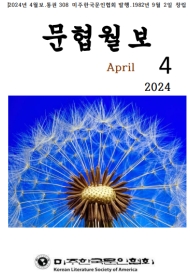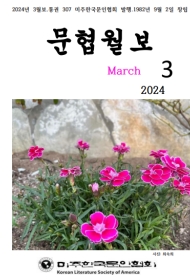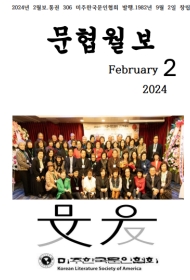Interview Paper
================
Wolran Kim
February 2014
I interviewed Sahar Saif in the cafeteria of the Student Union Building on Thursday, February 6th. She is a twenty-five-year old beautiful lady. I met her in one of my literature classes last fall semester, and we had pleasant chats a couple of times after class. She has lived here for almost two years. She came from the city called Nablus in Palestine. She always wears her scarf on her head. I knew a little about her before, but I came to know about her much more closely and intimately after this interview. I asked her the following questions and she answered in a very friendly manner. However, I felt something lacking about her answers regarding her country and Middle Eastern culture, but still we had to finish our interview because of her next class.
1. Why did you move here?
I came here by marriage. I met my husband in my country, and my husband came from Jerusalem, Israel. My parents are in Palestine and my two sisters are living in Seattle.
2. What are the differences and similarities between your culture and the U.S.?
What are different? You know (smiling), actually, EVERYTHING is different. From the language to people, nothing is the same as my country. In Palestine, all women wear scarves (maybe around 70 to 80% of women) and people looks a lot different than here, like skin and hair color. Also, the weather, Palestine is much like California not like Utah. So I am so cold in Utah’s winter, and my country never cold as here. And one thing of differences is that people smile and say hi often each other, because people never smile in my country. One more thing is that Palestinian markets always negotiate prices with customers, but never happen here from all fixed prices.
The similarities could be school system and family structure. We have elementary, junior high, high school, and college. And also there are mixed gender school and separated gender school as here.
3. What are some things that you enjoy about living here?
Yes, I really enjoy central air condition and heating system in the house. Also I love that I can use hot water anytime and always. Everyone has their own car, this is cool too.
4. What are things you miss about home?
I miss my family and my friends. And I also miss restaurants that I can eat Palestinian food. I could visit my sisters or friends anytime without asking in Palestine, but here, I can’t. I have to ask permissions if I can come over. That’s sad.
5. What things here are different from your country in your social life, education, customs, or food?
I came here by my marriage, so my life in here and in Palestine is totally different. In Palestine, I was a single girl living with my parents. But here, I am living with my husband’s parents, and I have a one year old daughter. My daughter’s name is Reena, here is her picture. Isn’t she so beautiful? I have a little hard time with my mother-in-law and father-in-law, because she had injured her knee and he gets mad easy while he is working in the kitchen. I have no idea. Sometimes I am so frustrate because of my school works, baby, and house works altogether. But I want to finish my degree as soon as possible. And I want to go graduate school too.
About the education, I think the American school is easier than the Palestinian school, because over there has more memorizing and more studying needs. But here, they are focusing more about discussions and writing assignments. Yes, Palestine has more cramming system of education compare to here, free discussion style. About food, we don’t eat pork because we are Muslims. I don’t eat beef either. And no alcohol but we smoke. In Palestine, women usually smoke Hookahs. But I don’t smoke Hookah because my husband hates it.
About the custom, we have a special occasion that called Ramadan. This is once year celebration, and we do fasting for a whole month, for thirty days. We can eat between sunrise and sunset every day. We only can eat before sunrise and after sunset.
6. What has the most difficult adjustment been?
My hardest things to adjust are the issues about my school and my future. English is hard and hard to decide my courses.
Since I have a daughter the same age as Sahar, she makes me feel praiseworthy about her. She has had violent situations with immigrating, her marriage, having a baby, living with her in-laws, and studying as a foreign student. This variety of changes may attack her mind in every moment, but she always seems very motivated and energized with her bright scarves and twinkling big eyes. Her reflection about the cultural shock and uncanny feelings evoked my sympathy a lot, because I have been through the exact same thing as her. I am still feeling like an eternal foreigner and a marginal man. To tell the truth, Sahar is the first close friend I’ve made during my U of U school life. Having lunch with her is very comfortable, and chatting with her is very fun despite my age being double hers. I used to be very shy to make young friends and share my personal life with others because of my poor English and introspective personality.
I did not have enough composure due to responsibilities to my family and being pressed for time. However, I surely know that friends are precious possessions as being someone between family and strangers. Without Sahar, I would have had a hard time finding an interviewee. I would have tried harder and invested the time to find good friends if I were younger. However, I feel much more comfortable with ESL students than English students despite needing more English friends for my speaking progress.
================
Wolran Kim
February 2014
I interviewed Sahar Saif in the cafeteria of the Student Union Building on Thursday, February 6th. She is a twenty-five-year old beautiful lady. I met her in one of my literature classes last fall semester, and we had pleasant chats a couple of times after class. She has lived here for almost two years. She came from the city called Nablus in Palestine. She always wears her scarf on her head. I knew a little about her before, but I came to know about her much more closely and intimately after this interview. I asked her the following questions and she answered in a very friendly manner. However, I felt something lacking about her answers regarding her country and Middle Eastern culture, but still we had to finish our interview because of her next class.
1. Why did you move here?
I came here by marriage. I met my husband in my country, and my husband came from Jerusalem, Israel. My parents are in Palestine and my two sisters are living in Seattle.
2. What are the differences and similarities between your culture and the U.S.?
What are different? You know (smiling), actually, EVERYTHING is different. From the language to people, nothing is the same as my country. In Palestine, all women wear scarves (maybe around 70 to 80% of women) and people looks a lot different than here, like skin and hair color. Also, the weather, Palestine is much like California not like Utah. So I am so cold in Utah’s winter, and my country never cold as here. And one thing of differences is that people smile and say hi often each other, because people never smile in my country. One more thing is that Palestinian markets always negotiate prices with customers, but never happen here from all fixed prices.
The similarities could be school system and family structure. We have elementary, junior high, high school, and college. And also there are mixed gender school and separated gender school as here.
3. What are some things that you enjoy about living here?
Yes, I really enjoy central air condition and heating system in the house. Also I love that I can use hot water anytime and always. Everyone has their own car, this is cool too.
4. What are things you miss about home?
I miss my family and my friends. And I also miss restaurants that I can eat Palestinian food. I could visit my sisters or friends anytime without asking in Palestine, but here, I can’t. I have to ask permissions if I can come over. That’s sad.
5. What things here are different from your country in your social life, education, customs, or food?
I came here by my marriage, so my life in here and in Palestine is totally different. In Palestine, I was a single girl living with my parents. But here, I am living with my husband’s parents, and I have a one year old daughter. My daughter’s name is Reena, here is her picture. Isn’t she so beautiful? I have a little hard time with my mother-in-law and father-in-law, because she had injured her knee and he gets mad easy while he is working in the kitchen. I have no idea. Sometimes I am so frustrate because of my school works, baby, and house works altogether. But I want to finish my degree as soon as possible. And I want to go graduate school too.
About the education, I think the American school is easier than the Palestinian school, because over there has more memorizing and more studying needs. But here, they are focusing more about discussions and writing assignments. Yes, Palestine has more cramming system of education compare to here, free discussion style. About food, we don’t eat pork because we are Muslims. I don’t eat beef either. And no alcohol but we smoke. In Palestine, women usually smoke Hookahs. But I don’t smoke Hookah because my husband hates it.
About the custom, we have a special occasion that called Ramadan. This is once year celebration, and we do fasting for a whole month, for thirty days. We can eat between sunrise and sunset every day. We only can eat before sunrise and after sunset.
6. What has the most difficult adjustment been?
My hardest things to adjust are the issues about my school and my future. English is hard and hard to decide my courses.
Since I have a daughter the same age as Sahar, she makes me feel praiseworthy about her. She has had violent situations with immigrating, her marriage, having a baby, living with her in-laws, and studying as a foreign student. This variety of changes may attack her mind in every moment, but she always seems very motivated and energized with her bright scarves and twinkling big eyes. Her reflection about the cultural shock and uncanny feelings evoked my sympathy a lot, because I have been through the exact same thing as her. I am still feeling like an eternal foreigner and a marginal man. To tell the truth, Sahar is the first close friend I’ve made during my U of U school life. Having lunch with her is very comfortable, and chatting with her is very fun despite my age being double hers. I used to be very shy to make young friends and share my personal life with others because of my poor English and introspective personality.
I did not have enough composure due to responsibilities to my family and being pressed for time. However, I surely know that friends are precious possessions as being someone between family and strangers. Without Sahar, I would have had a hard time finding an interviewee. I would have tried harder and invested the time to find good friends if I were younger. However, I feel much more comfortable with ESL students than English students despite needing more English friends for my speaking progress.













